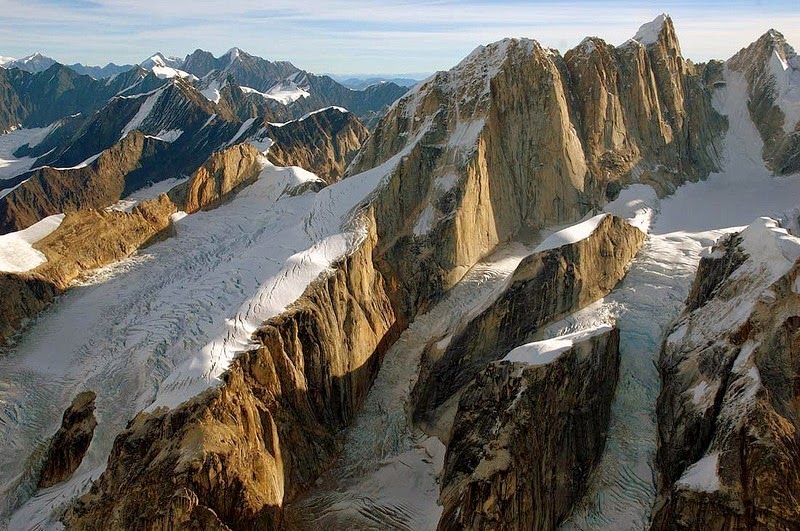The Great Gorge is one of the most spectacular gorges on earth. It runs for a length of 16 km and drops almost 2,000 feet over the distance, creating a grade that forces the Ruth Glacier to descend at an impressive pace of a meter a day. On either side of the gorge are solid granite cliffs that tower 5,000 feet above the glacier's surface. The depth of the ice within the gorge is more than 3,800 feet. If the ice were to melt tomorrow, it could create an abyss 2.6 km deep or more than one-half times deeper than the Grand Canyon.

The mountain lining the walls of the Great Gorge rises sporadically into towering spires and has been given names such as Moose's Tooth, Broken Tooth, Bear Tooth and Wisdom Tooth, to name a few, and really look like animals' teeth. So immense are these spires that what appear to be tiny flakes on these walls are actually ledges wide enough to park a tractor trailer.
As the Ruth Glacier flows down a steeper gradient, it tears and fractures into a treacherous 10-square mile section known as the Ruth Ice Fall near the bottom of the Great Gorge. During summer after the snowmelt, this section becomes virtually impassable.








Source
